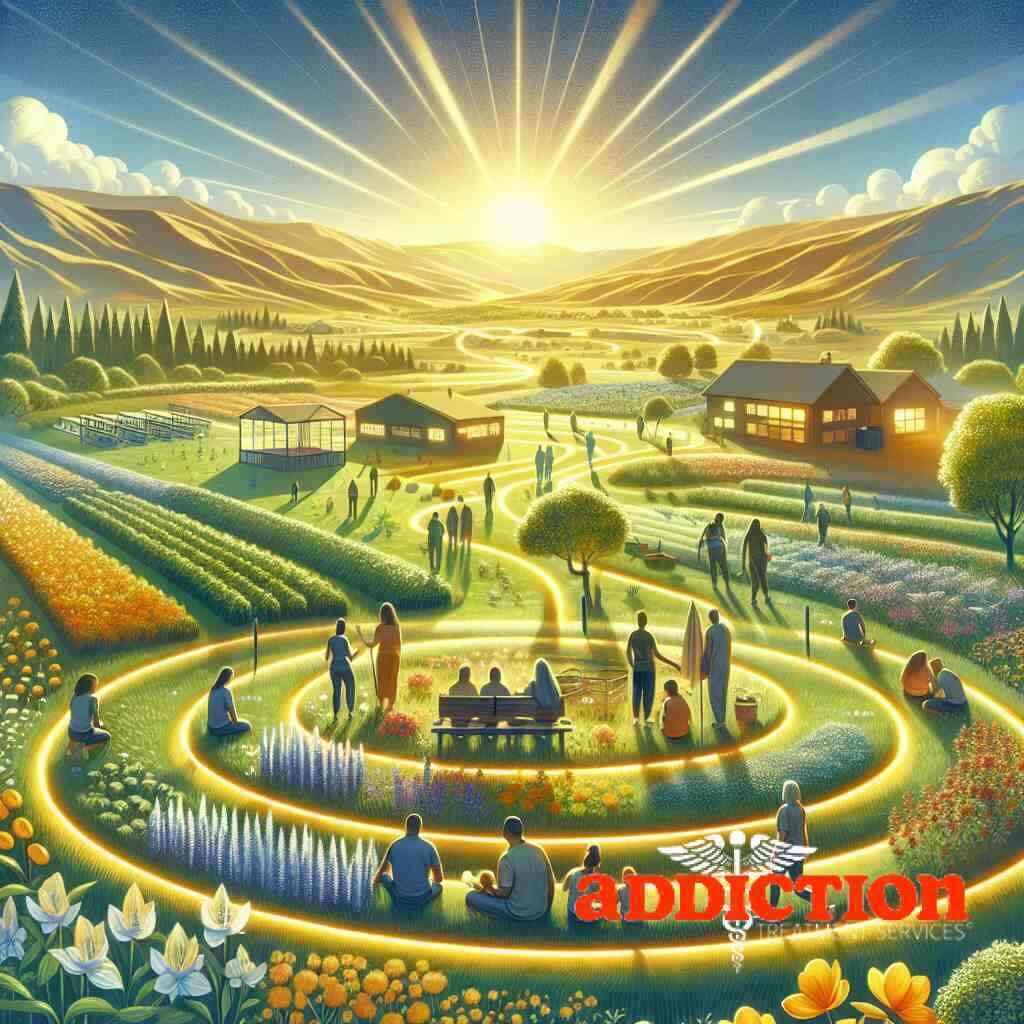 Posted On: 10/15/2025
Posted On: 10/15/2025Opening Pathways: Navigating the Complex Terrain of Dual Diagnosis
Unraveling Dual Diagnosis: A Massachusetts Perspective
Dual diagnosis, a term that encompasses the simultaneous presence of mental health disorders and substance use disorders, is an escalating concern in Massachusetts. This complexity requires specialized understanding and innovative responses to facilitate effective recovery. Addressing dual diagnosis is a nuanced endeavor due to the intertwined nature of mental illness and substance abuse. Massachusetts addiction treatment services recognize these challenges and strive to provide solutions that adapt to the unique landscapes of these disorders. Such approaches are essential in fostering a recovery environment that comprehensively addresses both the psychological and physiological aspects of addiction.
The Intersection of Mental Health and Substance Use Disorders
The intersection of mental health issues and substance use disorders reveals a symbiotic relationship that complicates treatment efforts. Individuals facing dual diagnosis experience challenges that extend beyond typical addiction hurdles, presenting unique barriers in the recovery process. Mental illness often exacerbates substance misuse, while substance abuse can, in turn, intensify underlying mental health issues. Understanding this dynamic is crucial for the development of effective treatment strategies. This duality requires an approach that integrates mental health and addiction services, ensuring holistic care approaches in addiction recovery that target both arenas concurrently.
The Role of Addiction Treatment Services in Massachusetts
In Massachusetts, addiction treatment services serve as a vital component in the fight against dual diagnosis. These services provide a comprehensive directory of treatment options tailored to meet the diverse needs of individuals facing co-occurring disorders. By offering resources specific to mental health and substance use disorders, they facilitate access to specialized programs that are essential for effective treatment. These programs not only address addiction but also provide necessary mental health support, underscoring the importance of integrated treatment for co-occurring disorders. For those navigating this complex terrain, the support from addiction treatment services is instrumental in achieving sustained recovery and improving quality of life.
Exploring the Maze: Understanding the Nuances of Dual Diagnosis
Co-occurring Disorders: Defining Dual Diagnosis
Co-occurring disorders, more commonly known as dual diagnosis, present a formidable landscape that demands a keen understanding. At its core, dual diagnosis involves the simultaneous affliction of a mental health disorder and a substance use disorder. This intricate tango of ailments necessitates a meticulously coordinated approach to treatment. The coexistence of these disorders creates complexities that complicate both diagnosis and treatment, as symptoms often overlap and can mask the true nature of each condition. Within Massachusetts addiction treatment services, professionals are dedicated to deciphering these complexities, offering tailored strategies designed to unravel the complexities of dual diagnosis treatment and pave the way for effective recovery.
Psychological Evaluations and Behavioral Health Assessments
Psychological evaluations and behavioral health assessments lay the groundwork for understanding dual diagnosis in individuals. These evaluations are crucial in identifying the underlying psychological factors contributing to both mental health and substance use disorders. By employing comprehensive assessments, clinicians can recognize patterns that may have otherwise gone unnoticed, allowing for a more accurate diagnosis and a tailored treatment plan. In Massachusetts, this thorough evaluative process is a cornerstone of understanding dual diagnosis strategies in Massachusetts. These assessments facilitate a holistic approach, addressing both psychological and substance use aspects, thus setting the stage for a more personalized and effective intervention.
Mental Illness and Substance Abuse: A Symbiotic Relationship
The relationship between mental illness and substance abuse is deeply interwoven, with each often exacerbating the other. This symbiotic connection is a core challenge in addressing dual diagnosis. Mental health disorders can significantly increase the likelihood of developing a substance use disorder, as individuals may resort to self-medication as a coping mechanism. Conversely, habitual substance abuse can trigger or worsen mental health conditions, creating a vicious cycle that is hard to break. Understanding this intricate relationship is vital for any holistic care approaches in addiction recovery. In Massachusetts, treatment plans incorporate strategies designed to concurrently tackle both disorders, thereby fostering a path toward robust recovery.

Bridging the Gap: Integrating Mental Health and Addiction Treatment
The Integrated Treatment Approach: A Holistic View
The integrated treatment approach is an essential component for addressing dual diagnosis effectively. This method involves simultaneously treating mental health disorders and substance use disorders through combined therapeutic strategies. By employing a comprehensive, coordinated model, Massachusetts addiction treatment providers ensure that each facet of an individual’s condition is addressed. The role of therapy in addiction treatment is undeniable, promoting healing by addressing the underlying psychological concerns contributing to substance misuse. This holistic dual diagnosis treatment incorporates various modalities, including behavioral therapies, medication, and support groups, all working together to foster a cohesive recovery journey.
Massachusetts Treatment Programs: Tailored for Dual Diagnosis
In Massachusetts, treatment programs are strategically tailored to meet the diverse needs of individuals with dual diagnosis. Recognizing the complexity of treating co-occurring disorders, these programs offer flexible solutions designed to accommodate the unique challenges faced by each client. Massachusetts addiction treatment services provide a spectrum of options, from intensive outpatient programs to residential care, ensuring accessibility to comprehensive treatment plans. By customizing care, these programs pave the way for effective intervention, enabling individuals to address both mental health and addiction issues concurrently, thus enhancing their chances of successful long-term recovery.
Innovative Strategies: Comprehensive Recovery Plans
Innovative strategies in treating dual diagnosis focus on integrating traditional therapies with cutting-edge practices to develop comprehensive recovery plans. Massachusetts addiction services are at the forefront of these efforts, employing a dynamic approach that includes psychological evaluations, behavioral health assessments, and targeted interventions. These comprehensive plans for dual diagnosis care address every aspect of the individual’s condition, offering a robust framework for recovery. By anticipating potential hurdles and providing meticulous support systems, these strategies ensure individuals receive the personalized attention necessary to navigate the complexities of dual diagnosis effectively. This approach not only promotes healing but also empowers individuals to reclaim control over their lives.
Pathways to Recovery: Effective Dual Diagnosis Care
Individualized Treatment Strategies: Beyond the Basics
Addressing dual diagnosis effectively necessitates a commitment to individualized treatment strategies that prioritize the unique needs of each individual. These strategies provide a customized roadmap, recognizing that a one-size-fits-all approach is inadequate in tackling the intricacies of co-occurring disorders. By focusing on personalized care, Massachusetts addiction treatment centers are able to tailor interventions that address both mental health and substance use disorders simultaneously. This bespoke approach ensures that treatment plans are adaptable, evolving with the patient’s progress and challenges, thereby enhancing the prospects for sustained recovery.
Collaboration between healthcare providers is pivotal in constructing these strategies, allowing for comprehensive assessments of psychological and physiological needs. By embracing a holistic perspective, these centers integrate elements such as medication management, psychotherapy, and alternative therapies to form a cohesive treatment plan. This multifaceted approach not only addresses the immediate symptoms but also delves deeper to unearth and mitigate underlying issues that may impede recovery. Thus, individualized treatment strategies are key in providing a nuanced, effective path to healing in the realm of dual diagnosis recovery.
Relapse Prevention and Ongoing Support Services
Relapse prevention is a critical facet of successful dual diagnosis treatment. Massachusetts addiction treatment services recognize the imperative need for ongoing support to bolster resilience against potential setbacks. By employing proactive measures that anticipate the challenges of maintaining sobriety, these services offer continuous reinforcement to individuals striving for recovery. Comprehensive relapse prevention plans integrate a range of techniques, including skill-building workshops, stress management strategies, and coping mechanism development.
Support services extend beyond traditional therapy sessions, embodying a network of resources geared towards sustained recovery. Active participation in support groups, such as AA and NA meetings, provides a communal space for individuals to share experiences and gain encouragement from others facing similar challenges. Additionally, access to sober living support networks aids individuals in maintaining a stable and supportive living environment crucial to their recovery journey. By focusing on the provision of ongoing support, Massachusetts addiction treatment services ensure individuals are equipped with the tools and community necessary to navigate their path to long-term sobriety.
Specialized Treatment Centers and Support Groups in Massachusetts
Specialized treatment centers and support groups play a crucial role in Massachusetts for individuals grappling with dual diagnosis. These centers are equipped with the expertise required to address the nuanced challenges posed by co-occurring disorders, offering tailored care designed to meet the specific needs of each patient. They extend beyond basic treatment facilities, providing environments that are conducive to both mental well-being and sobriety.
The strategic placement of such centers across Massachusetts ensures accessibility of services, allowing individuals to find help close to home. These behavioral health centers in Massachusetts offer a range of services from intensive outpatient programs to comprehensive recovery support, ensuring flexibility and adaptability in treatment plans. Moreover, participatory support groups offer pivotal community support, fostering a sense of belonging and understanding among members who share similar struggles. The seamless integration of specialized treatment centers with robust support networks exemplifies collaborative addiction and mental health treatment in Massachusetts, underscoring their importance in the journey toward successful dual diagnosis recovery.
For those navigating the challenges of dual diagnosis, these specialized resources provide a lifeline, anchoring them firmly on the path to overcoming both mental health and substance use hurdles. By offering a blend of clinical expertise and empathetic support, Massachusetts remains at the forefront of pioneering effective dual diagnosis care solutions.

Towards Healing: Cultivating a Comprehensive Understanding and Support System
The Challenges in Dual Diagnosis Recovery: Overcoming Barriers
Navigating the complexities of dual diagnosis recovery is no small feat and presents multifaceted challenges for both individuals and healthcare providers. One primary barrier is the interwoven nature of mental health disorders and substance use disorders, creating significant hurdles in achieving effective treatment outcomes. Individuals often encounter misconceptions and stigma associated with dual diagnosis, which can hinder their willingness to seek support. Moreover, the overlapping symptoms of co-occurring disorders complicate accurate diagnosis and tailored treatment plans, necessitating a sophisticated approach by addiction treatment professionals.
Massachusetts is making strides to address these challenges through the provision of specialized programs that tailor interventions to individual needs. By focusing on integrated treatment for co-occurring disorders, the state is supporting a more individualized recovery pathway. These efforts emphasize understanding the intricacies of dual diagnosis and underscore the imperative for comprehensive support strategies to effectively bridge gaps in treatment. More information on overcoming these challenges can be found by exploring integrated treatment for co-occurring disorders.
Behavioral Health Services: Expanding Horizons
The expansion of behavioral health services in Massachusetts is a vital step toward addressing dual diagnosis more effectively. These services are designed to provide a holistic approach, recognizing the necessity of treating both mental health disorders and substance use disorders concurrently. Enhanced behavioral health services incorporate innovative strategies such as cognitive-behavioral therapy, motivational interviewing, and holistic therapies to foster comprehensive recovery.
Massachusetts is making concerted efforts to increase accessibility to these vital services, ensuring that individuals can receive timely and relevant care. By broadening the scope of these services, healthcare providers are better equipped to cater to the evolving needs of those grappling with dual diagnosis. The push towards more inclusive and comprehensive behavioral health services highlights the state’s dedication to improving mental health outcomes and fostering a more resilient community. For more extensive information on behavioral health centers, visit the behavioral health centers in Massachusetts.
Future Directions: The Evolution of Dual Diagnosis Treatment in Massachusetts
As the landscape of addiction treatment continues to evolve, Massachusetts is positioned at the forefront of advancements in dual diagnosis care. Future directions involve leveraging cutting-edge research and clinical practices to refine treatment methodologies. One prominent trend is the integration of technology and data analytics to enhance personalized care through predictive modeling and tailored interventions. This approach not only improves treatment efficacy but also helps in preempting potential relapse scenarios.
Additionally, there is a growing focus on reinforcing community-based programs and support networks that bolster sustained recovery. By linking individuals with wider community resources, these initiatives aim to create a support system that extends beyond conventional treatment settings. As Massachusetts looks towards the future, these efforts signify a commitment to transforming dual diagnosis care through innovation, research, and collaboration. These progressive strategies are central to evolving the state’s addiction treatment framework, ensuring that individuals receive the comprehensive care essential for enduring recovery. More insights into these novel strategies can be explored through resources focusing on collaborative addiction and mental health treatment in Massachusetts.
Frequently Asked Questions
Question: What makes the integrated treatment approach effective for dual diagnosis recovery in Massachusetts?
Answer: The integrated treatment approach is highly effective for dual diagnosis recovery, particularly in Massachusetts, because it addresses both mental health disorders and substance use disorders concurrently. By combining mental health services with addiction treatment services, individuals receive comprehensive care that targets the root causes of their conditions. Massachusetts addiction treatment centers offer tailored programs that incorporate behavioral therapies, medication, and support groups, ensuring a holistic treatment plan. This dual focus facilitates a more robust and sustained recovery by addressing the interconnected nature of mental illness and substance abuse.
Question: How do Massachusetts treatment programs design comprehensive recovery plans for individuals with co-occurring disorders?
Answer: Massachusetts treatment programs are adept at designing comprehensive recovery plans for individuals with co-occurring disorders. These plans are crafted following detailed psychological evaluations and behavioral health assessments, which identify unique patterns and challenges. Services like Addiction Treatment Services then develop a multi-faceted approach involving intensive outpatient programs, medication-assisted treatment, and cognitive-behavioral therapies. The aim is to treat the person holistically, empowering them to overcome both substance misuse and mental health challenges. This meticulous planning and execution underscore the commitment of Massachusetts addiction resources in paving the way for effective dual diagnosis care.
Question: In what ways does the blog title ‘Understanding the Complexity of Dual Diagnosis in Massachusetts’ resonate with what Addiction Treatment Services offers?
Answer: The blog title ‘Understanding the Complexity of Dual Diagnosis in Massachusetts’ is perfectly aligned with the services offered by Addiction Treatment Services. Our organization excels in navigating these complexities by providing access to a directory of specialized treatment centers that cater to dual diagnosis needs. With a focus on integrated treatment approaches and comprehensive recovery plans, we ensure that individuals receive therapy and support that is customized to their specific circumstances. Our dedication to offering holistic dual diagnosis treatment showcases our commitment to addressing both mental health and addiction needs in Massachusetts and beyond.
Question: What are the benefits of ongoing support services in dual diagnosis recovery in Massachusetts?
Answer: Ongoing support services are critical in dual diagnosis recovery, especially within Massachusetts. These services offer substantial benefits, such as relapse prevention and continuous emotional support, which are fundamental for maintaining sobriety and mental health stability. Massachusetts addiction treatment programs emphasize the importance of support networks by organizing AA Meetings, NA Meetings, and sober living support systems. These environments provide individuals with a sense of community and shared understanding, which are invaluable throughout the recovery process. Ultimately, these support structures offer essential tools for individuals to navigate the challenges of recovery, significantly boosting the chances of achieving long-term success.
Question: How do specialized treatment centers in Massachusetts improve outcomes for people with dual diagnosis challenges?
Answer: Specialized treatment centers in Massachusetts play an integral role in improving outcomes for individuals facing dual diagnosis challenges. These centers are equipped with skilled professionals who understand the complexities of co-occurring disorders and can provide services that address each individual’s unique needs. They offer a variety of flexible treatment options, including residential care, outpatient care, and behavioral health services, ensuring accessible and adaptable treatment plans. By fostering an environment that emphasizes both mental well-being and addiction recovery, these centers enable individuals to receive customized care that supports their journey toward recovery and improved quality of life.


